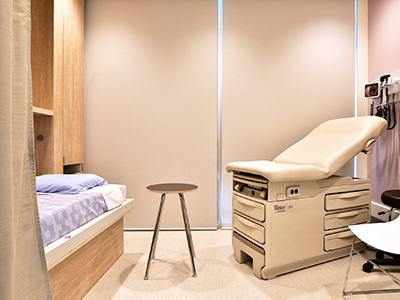
New clinic will study how poor sleep takes its toll on Canadian’s health and safety.
A good night’s sleep is increasingly recognized as a key factor in maintaining good health, but many Canadians aren’t getting enough shuteye. When it comes to sleep apnea, a disorder which interrupts breathing and disrupts sleep, experts say we are underestimating the scope of the problem. And that has consequences for everyone.
Vancouver Coastal Health Research Institute scientist Dr. Najib Ayas studies sleep apnea at the newly opened Leon Judah Blackmore Centre for Sleep Disorders at the University of British Columbia Hospital. “It has been estimated that about nine per cent of men and four per cent of women who are middle aged have sleep apnea. But sleep apnea is highly tied to obesity, which has been rising. So we think the percentages are now much higher. There’s probably about a million adults in Canada who have obstructive sleep apnea.” Even worse—Ayas says about 80 per cent of those adults have not been diagnosed.
As a result, Ayas says too many Canadians are trying to function while sleep deprived, putting themselves and others in danger.
“People with untreated sleep apnea have daytime tiredness and reduced cognitive ability. They are at a higher risk—two to eight fold higher— for occupational injury and motor vehicle accidents.”
Fortunately, there are many treatment options for sleep apnea. The standard is using a Continuous Positive Air Pressure or CPAP machine, which essentially pushes air into the nose. But not all provinces cover the cost of a CPAP machine. Ayas says this doesn’t make economic sense. “Even if we only look at motor vehicle crashes, the number of crashes—and the costs associated—that would be prevented by using CPAP would pay for the machines.” Ayas and his colleagues have written guidelines for ways that provinces can monitor drivers with sleep apnea in order to make the roads safer.
There are also significant health risks with undiagnosed sleep apnea. Ayas says that left untreated, sleep apnea greatly increases the risk of cardiovascular disease and diabetes. He urges people who are experiencing the symptoms of sleep apnea—daytime tiredness, loud snoring, stopping breathing during sleep and waking up in the night—to see their doctor. They may then be referred to the Sleep Disorders Centre for a conclusive diagnosis.

Once diagnosed, the primary treatment for sleep apnea is the CPAP machine but Ayas says patients can also modify sleep position, use special dental appliances and change their lifestyle by losing weight, quitting smoking and cutting down on alcohol. There is currently no medication that treats sleep apnea. Middle aged men and post-menopausal women are most at risk, followed by pregnant women. Overweight and diabetic patients are also at a higher risk.
Ayas is conducting a series of studies related to sleep apnea. They range from trying to find a biomarker to better predict cardiovascular disease in sleep apnea patients, to looking at connections between pregnancy and sleep apnea, to compiling a decision guide for patients to help them choose which sleep apnea treatment will work best for them. With about 40 patients coming through each day, the clinic is able to support a wide variety of sleep research.
Screens are winning the war on sleep
Although sleep apnea is his specialty, Dr. Ayas says sleep problems are increasing for all Canadians. In our fast paced, on the go 24/7 society, laptops, TVs and mobile phones are used around the clock—and they are intruding on our sleep quantity and quality. Ayas wants people to become more aware of the importance of sleep, and value it as much as they might value eating well or exercising—and be inspired to put down their phone.
“Sleep refreshes your brain and improves your cognitive function. Recent data shows that one of the functions of sleep is to get rid of the toxins in your brain. This explains why we see cognitive decline when people get less than 8 hours a night.”

“People who deprive themselves of sleep on a regular basis have a higher risk of a range of diseases: cardiovascular disease, diabetes, obesity. There’s something about sleep that not only restores but also regenerates. You should protect your sleep!”


